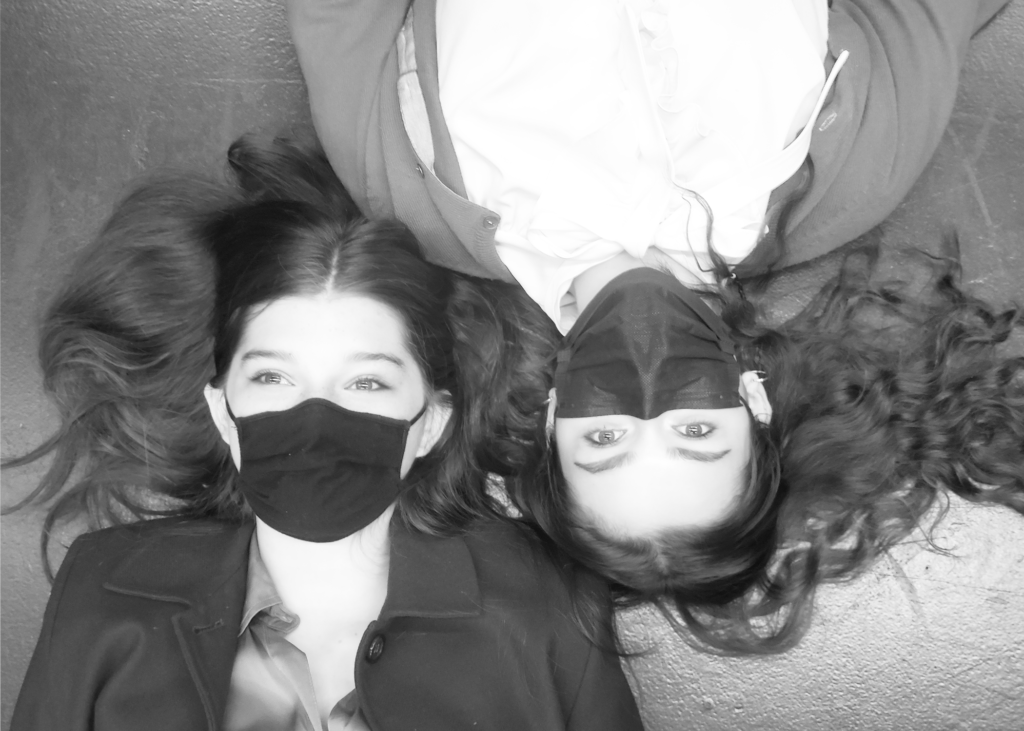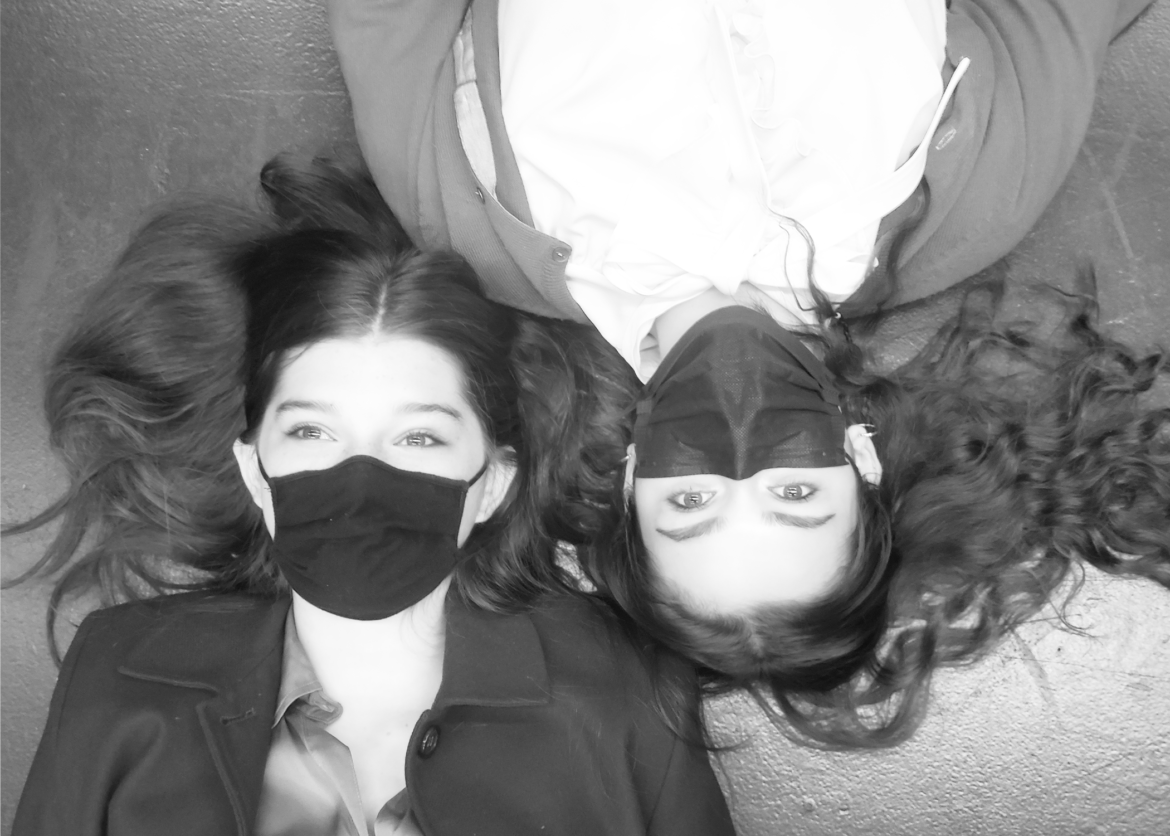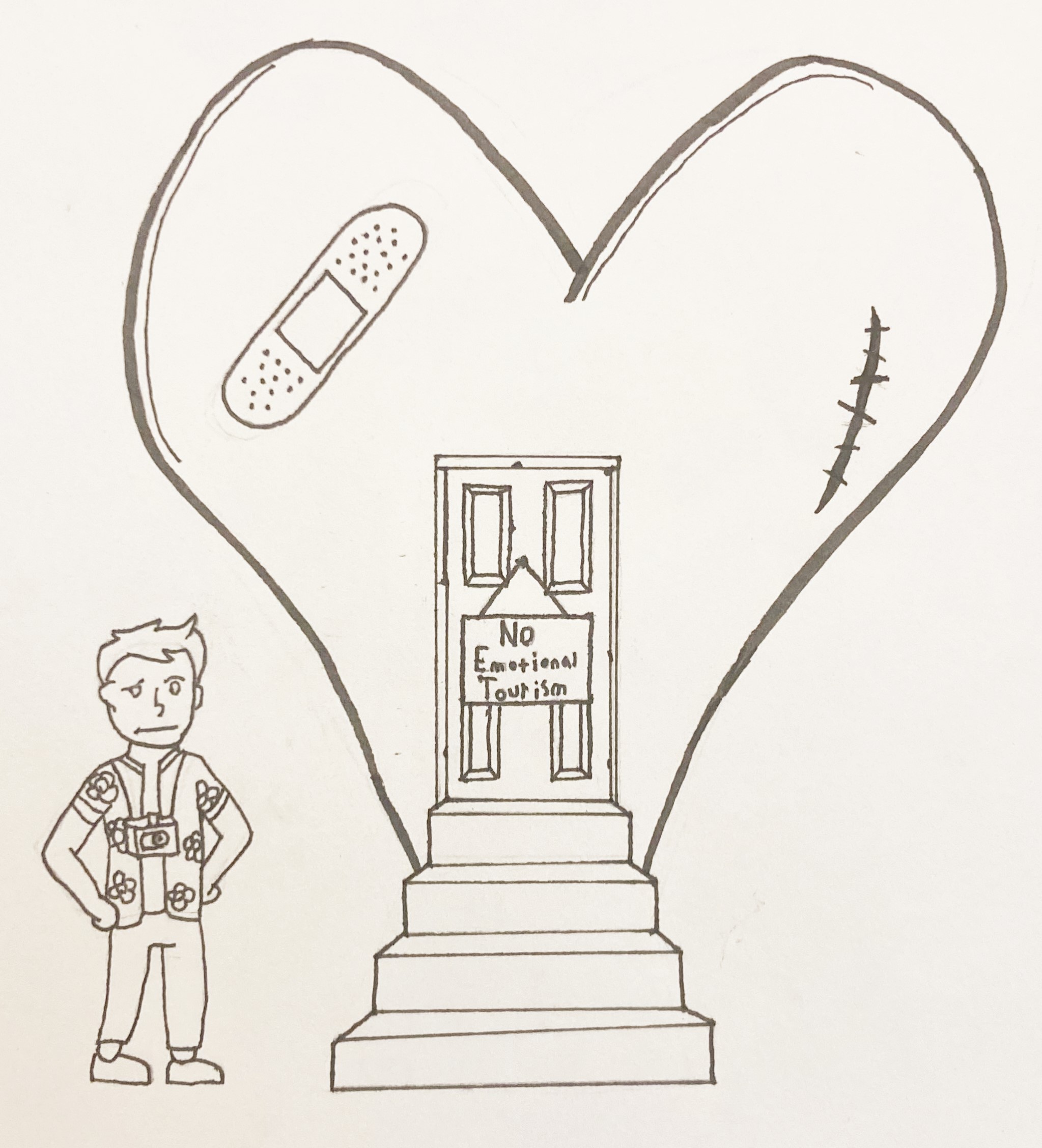It’s that time of the year again: Dramafest season! For the 66th consecutive year, Roosevelt’s Theatre Department students are hosting Dramafest, a yearly festival that grants drama students total freedom to showcase their creativity and passion for the arts. Shows are directed, organized, and played entirely by Roosevelt students.
This year, 16 seniors are directing eight separate plays.
These plays are all handpicked by the directors, although one is a self-written play by Senior Haylee Weisner called “Bereavement Leave.”
The process of choosing these plays is primarily director-led. Directors select two plays they’re interested in and submit the scripts to Katie Greve, the Co-Director of the theatre program and the artistic director of Dramafest. Greve picks one of the two for Dramafest.
The plays have a range of diversity when it comes to plot and scenery, with drastically different moods for each.
One of the plays, titled “Variations on a Theme,” directed by Lucia Young and Eloise Maguire, is about a hard breakup and different perspectives of how the post-breakup confrontation goes.
Another play titled “I will go… I will go,” directed by Myles Mawa and Ursula Debray, follows a man convinced he can cross the English channel just by swimming on his own.
Directors Fiona Willmer, Reuben Berg, and Serafina Miller direct a play called “13 Ways to Screw up your College Interview.” The show is a comedy with a bunch of ridiculous characters that mess up their college interview in their own weird ways.
The student directors are passionate about the plays being totally controlled by the students, along with the fact that it is more enjoyable not being constrained by the adults. Director of “Tilda Swinton Betrayed Us,” Alec Lai, reflects on this saying, “It’s just so fun to put on something with people your own age.”
The array of shows also gives directors plenty of room for different stylistic choices when directing. Willmer says, “We do have a lot of freedom in costumes, and blocking, and sets and things like that. It’s super fun to explore that and try new things.”
This year a total of about 85 people auditioned to be in Dramafest, which is the average number of auditions each year. The only difference this year is that everyone gets a role and students can also choose the amount of commitment in most cases.

Camille Pape and Madison La-Rue Barton, pictured above
Willmer says, “You can really be any sort of part, like a lead role or an ensemble role, it’s completely up to you.” This also depends on how the audition goes, but regardless all students receive a role that supports their level of commitment.
Dramafest also strives to be inclusive. Whether someone has been acting for years, or has never been in a play, directors encourage them to join Dramafest. Lai says, “It’s not just something for the theatre program, it’s something that’s really for the entire student body. The drama department wants everyone and anyone.”
Lai also says that the best way to support the Roosevelt drama department is to either join it or attend the shows. Both Lai and Willmer especially stress the importance of simply attending the shows. “That’s why we do it, to perform for people,” says Lai.
Typically, Dramafest hosts one performance of each play. However, in light of the pandemic and social distancing protocols, this year there will be two initial performances for each play held between Nov. 8 and Nov. 10.
The first showing of each Dramafest play is held after school like normal, except this year this they will be outside. The Theatre Department plans on holding the second showing inside, in the RHS Theater, later that night.
The final performances of the top three plays are scheduled as a Fest Finale on Nov. 12. The plays within Fest Finale are decided by three judges: Arthur Langlie, an RHS and Carnegie Mellon Alum, Sara Albertson, a teaching artist and professional at Seattle Repertory Theatre, and Teague Parker, a professional Seattle actor and teaching artist. These judges grade the night’s performance of each play to select the top three showings. Selections are based on a rubric that involves the content of the shows, acting, directing, and tech elements.
An important feature of any theatrical show is the tech. This includes stage-managing, costume and set design, lighting, props, and sound effects. Junior production stage manager, Lucille Dunn, comments on the significance of tech, “I think it’s really important, almost as important as acting is, I think it’s the same thing as putting on any other show, it’s just run fully by students, and so it’s organized by students and communication driven. You have to have tech to put on a show.”
Shira Pinker, a Roosevelt junior in the beginning costume design class, works on the show “Banned from Entry.” She says, “The class is split into little teams that each help with a different play. They build the wardrobe and they come up with the ideas, along with the director and they pull out the pieces and just help build a costume for each character as needed.”
Pinker also touches on the problem-solving involved with Dramafest, saying, “That play has a lot of characters and not as many actors so we are focusing on efficiency and fast costume changes between characters.”
When asked to describe Dramafest in one word, Greve comments on the responsibility that the directors hold in the process, saying, “Stu [Co-Director of the theatre program Ben Stuart] and I really take a backseat and are making things happen behind the scenes, but the kids are really what this is about and them taking ownership, maybe that’s the word: ownership.”
Check out the rhstheatre.net to stay up to date on Dramafest showings!



